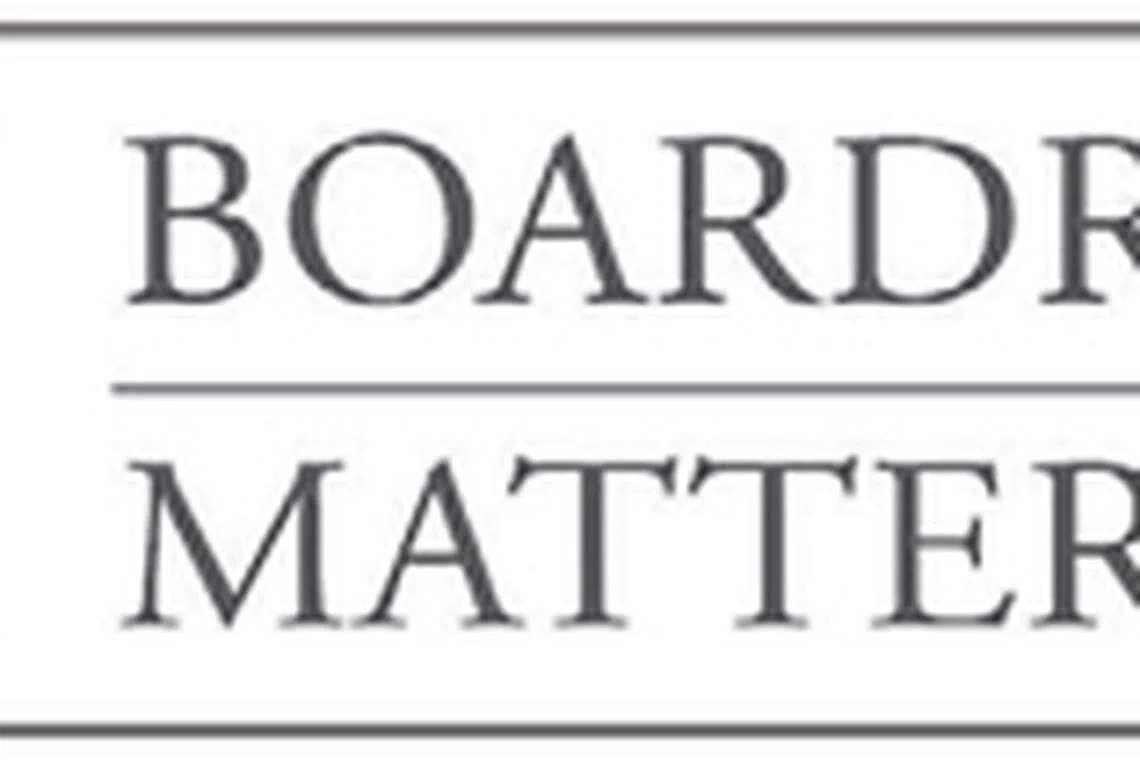The board's oversight of corruption risk
It should leverage on the right corporate culture to help steer management and employees clear of graft and other illegal activities.
SINGAPORE is known for its clean system and low corruption levels. It is the sixth least corrupt country in the world in the Corruption Perceptions Index 2017 by Transparency International. Singapore is also consistently ranked as the least corrupt Asian country in the Political and Economic Risk Consultancy annual surveys.
The Corrupt Practices Investigation Bureau has declared that corruption in Singapore "remains under control", with the number of private sector cases continuing to remain low despite forming the majority of corruption cases. Recent high-profile financial scandals have, however, forced a rethink of the ethics and culture of corporate leadership.
A recurring theme
In the case of the spectacular collapse of Pan-Electric Industries in 1985 and UK merchant bank Barings a decade later, the focus of investigations post-crises was on board responsibility and oversight of management. Yet, corruption and the ensuing crises seem to re-emerge years later. The corporate scandals involving "S-Chips" (Singapore-listed China companies) in the mid-2000s and early 2010s have now resurfaced in the recent case of Midas Holdings whose auditor's reports for the financial years ending from 2012 through to 2016 can no longer be relied on.
Earlier this year, up to 17 former and current executives of Keppel Corp and its offshore and marine units were investigated in connection with bribery charges involving Keppel Offshore and Marine in Brazil. This followed denials by the board that it was not aware of any illegal payments. Keppel Corp had, in the past two years, declared its "zero tolerance" policy, including a statement to the SGX, when refuting allegations of corruption.
Plugging the gaps
Subsequent to each crisis, the regulators have sought to plug the gaps to prevent similar events from recurring. Questions about poor corporate governance, dubious accounting practices and financial irregularities are particularly relevant.
The Pan-El crisis, for example, led to changes in the Companies Act in 1990 including the mandatory formation of Audit Committees for listed companies, and a system of internal accounting controls for public companies.
The Barings collapse also resulted in extensive changes to the then Futures Trading Act.
In 1998, in the aftermath of the Asian Financial Crisis, the Singapore Institute of Directors (SID) was formed to promote high standards of corporate governance, and the professional and ethical conduct of directors. Over the years, the SID has sought to not just be relevant during a crisis, but also to steer the corporate ecosystem towards good corporate governance.
Board accountability and responsibility
The most recent review of the Code of Corporate Governance emphasises the board's role in establishing the appropriate culture, values and ethical standards of conduct at all levels of the company.
According to a key principle of the Code, the board is responsible for the governance of risk and ensuring that management maintains a sound system of risk management and internal controls.
Since corporate culture has a significant effect on behaviour, the board should leverage on the right culture to help steer management and employees clear of corruption and other illegal or inappropriate activities.
Setting the tone
What factors then should the board consider in embedding the right culture?
First, there must be a clear and strong tone from the board demarking a "red line". Zero tolerance means no exceptions, full stop. To add bite to the tone from the board, there must be careful monitoring, rigorous enforcement and severe consequences for breaches, including dismissal, reporting to the relevant authorities and public disclosure. More importantly, both the board and top leadership must lead by example through their actions.
Second, the board should seek assurance from top management and auditors that employees clearly understand the implications and adverse impact of corruption. Zero tolerance requires a mindset change, and employees will take their cue from their board leadership. Hiring and retaining the right employees who internalise the corporate culture is a real test of commitment to fight corruption.
Third, the board must review the company's strategies and priorities. The board must assess if contracts can be clinched and fulfilled based on the merits of its goods and services and unique value proposition. The appropriate strategy is one that leverages on the company's strengths and opportunities, which if designed and executed well, would ensure the company's continuing competitive edge.
Fourth, the board, in particular the Remuneration Committee, should assess whether performance targets are aligned with market realities. Doing so will take pressure off management and staff from succumbing to pay bribes and enable them to pursue clean businesses. To curb excessive risk-taking and encourage responsible decision-making, the board can adopt, for instance, deferred bonus schemes and clawback mechanisms.
Finally, the board, especially the Audit and, or Board Risk Committee, should diligently monitor that robust anti-corruption programmes are in place. The board must ensure that internal audit and risk control systems are adequate and effective. This includes proper follow-up on key issues highlighted by internal and external auditors, thorough investigation and resolution of suspicious acts identified through whistleblowing channels, and disclosure.
History shows that corruption could rear its ugly head and taint corporate ideals. All the more crucial is the realisation that ethical standards are fundamental to how companies should operate. Boards must play a pivotal role in embedding the right culture to steer companies clear of corruption and crises.

BT is now on Telegram!
For daily updates on weekdays and specially selected content for the weekend. Subscribe to t.me/BizTimes
Companies & Markets
Far East Orchard acquires 49% stake in UK-based purpose-built student accommodation operator for £17.6 million
Nestle sales growth sputters on US slump, vitamin snags
BNP Paribas beats estimates as lower costs offset trading slump
TikTok ultimatum puts US firms in firing line for China response
Toyota and Nissan pair up with Tencent and Baidu for China AI arms race
BHP targets Anglo American in bid valuing miner at US$39 billion
